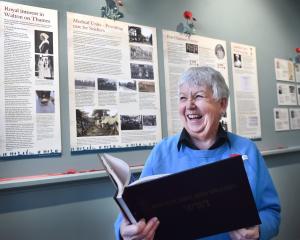Inspections of more than 2100 child restraints throughout Southland in the past 20 months showed 51% were either not installed or used properly, Otago-Southland car seat services manager Kathryn Impelmans said.
Checks were carried out regularly in Invercargill, Gore, Queenstown and four small Southland towns.
The most common faults found were twisted or loose harnesses or the tether strap not even being used at all, she said.
The high incidence of incorrect use was concerning, she said.
''If a child is not held in the correct position in its seat there is a greater chance of the child being injured in a collision. If the harnesses are too loose, the child could come out altogether.''
Dunedin Plunket staff also carried out regular checks, she said. While their inspection results were not collated in the same detailed way as those in Southland, Mrs Impelmans said staff believed the incidence of incorrect use in Dunedin was also running about 50%.
The Ministry of Transport does regular surveys to see how many children are being transported in approved child restraints.
The latest survey showed 95% of drivers stopped were transporting children aged between 5 and 9 in appropriate car seats, as were 92% of drivers transporting under-5s.
But Mrs Impelmans, who is based in Invercargill, said those surveys were observational and based only on whether children were in car seats, not whether the seat was installed correctly or being used correctly.
Most parents and grandparents using car seats wanted to do the right thing, Mrs Impelmans said.
''Most of them don't realise they are making a mistake,'' she said.
In Southland, Plunket, Road Safety Southland and New Zealand Police were working together to try to improve correct installation and use rates, Mrs Impelmans said.
That included inspecting more than 1000 car seats annually through a co-ordinated Seen and Safe programme, visiting 15 local kindergartens annually, and inspecting car seats free for any driver who wanted a check.
Correct use of car seats had improved by about 5%-8% since Seen and Safe began four years ago Mrs Impelmans said, and it was hoped rates would improve further as the programme and other campaigns continued.
Dunedin-based Plunket community services leader Catherine Caley said the Seen and Safe programme did not operate in Dunedin but she would like to see it extended to the city if resources allowed.










!["[The sector is] less competitive than groceries and banks that the government spend a lot of...](https://www.odt.co.nz/sites/default/files/styles/odt_landscape_small_related_stories/public/story/2025/04/billie_moore.jpg?itok=GN8uIA4p)
